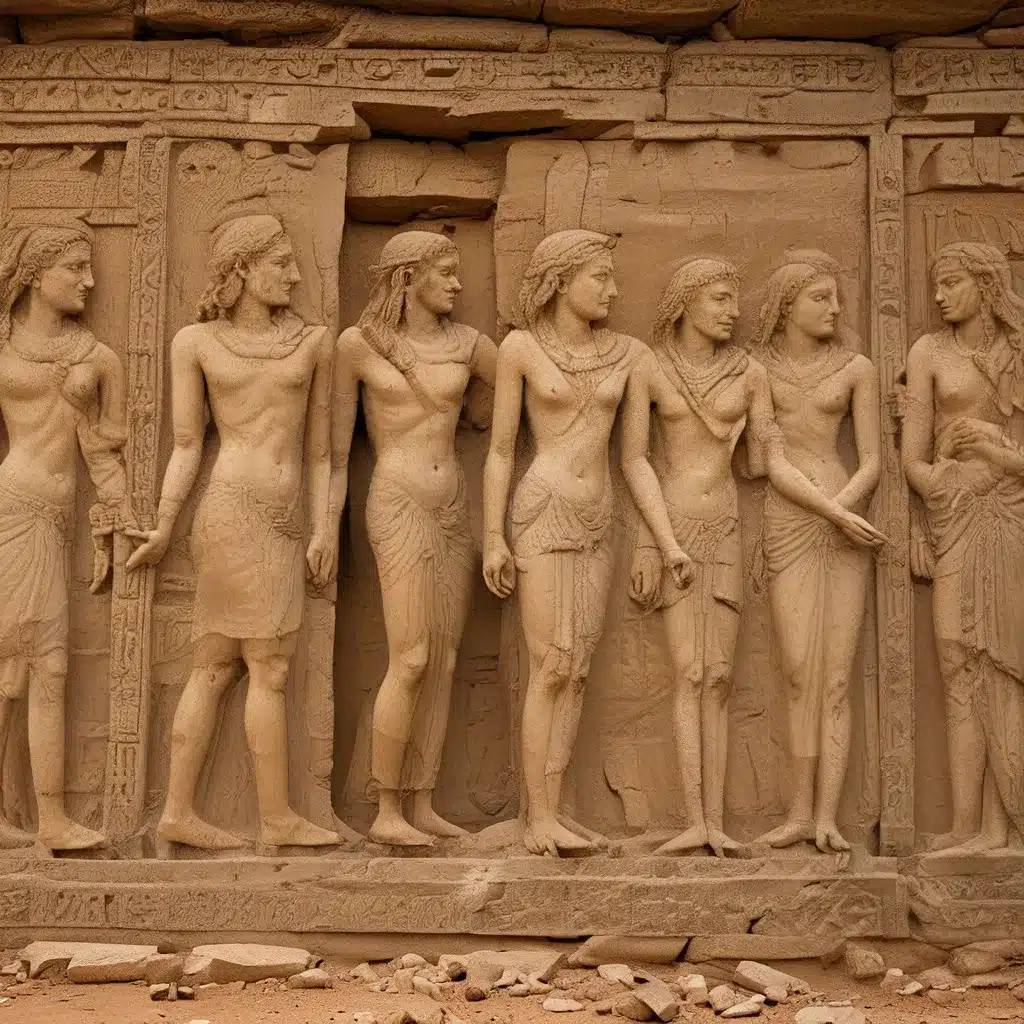
Humanity’s fascination with the past is a testament to our innate curiosity and desire to unravel the mysteries that have captivated us for centuries. From the lost city of Atlantis to the ruins of Pompeii and the enigmatic Indus Valley Civilization, the annals of history are adorned with tales of magnificent civilizations that once thrived, only to vanish, leaving behind whispers of their former glory.
Atlantis: The Allure of a Vanished Utopia
The legendary Atlantis, as recounted by the ancient Greek philosopher Plato, has long been a source of intrigue and speculation. According to Plato’s dialogues, Timaeus and Critias, Atlantis was an advanced civilization that existed around 9,000 years before his time. Described as a utopian island with flourishing cities, Atlantis was said to be a naval power that sought to conquer the Mediterranean, only to meet a cataclysmic fate and disappear beneath the waves.
The location of Atlantis remains a subject of heated debate among scholars, archaeologists, and enthusiasts. Various theories propose locations ranging from the Mediterranean to Antarctica, while some interpret the story allegorically, suggesting that Atlantis represents a moral lesson rather than a tangible place. Nonetheless, the technological marvels attributed to the Atlanteans, such as their alleged feats of engineering, architecture, and cultural sophistication, continue to captivate the imagination and have significant implications for our understanding of ancient history.
Pompeii: A Frozen Moment in Time
In contrast to the mythical Atlantis, the city of Pompeii in ancient Rome met a tragic, yet well-documented end. Nestled at the foot of Mount Vesuvius, Pompeii thrived until the fateful eruption of the volcano in 79 AD, which buried the city in layers of ash and preserved it like a time capsule for future generations.
The remarkably well-preserved ruins of Pompeii offer a unique window into the daily lives of its inhabitants. Archaeologists have uncovered bustling marketplaces, opulent villas, and intricate frescoes depicting everyday scenes, providing a glimpse into the vibrant culture and social dynamics of ancient Roman society. The haunting plaster casts of the city’s residents, frozen in their final moments, serve as a poignant reminder of the devastating power of natural disasters and the fragility of human existence.
Mohenjo-daro: The Enigma of the Indus Valley Civilization
Halfway across the world, the ancient Indus Valley Civilization flourished around 2600 to 1900 BCE, with one of its major cities being Mohenjo-daro. This advanced urban center boasted sophisticated city planning, an advanced drainage system, and a writing system that remains undeciphered, adding an extra layer of mystery to the understanding of this ancient civilization.
The Indus Valley Civilization, at its peak, spanned a vast territory, encompassing modern-day India, Pakistan, and parts of Afghanistan. Its cities, including Mohenjo-daro, were characterized by their grid-like layouts and advanced infrastructure, suggesting a highly organized and technologically proficient society. The Indus script, found on artifacts throughout the region, has challenged archaeologists and linguists, as their efforts to decipher its meaning have so far been unsuccessful.
Commonalities and Lessons from the Past
Despite the geographical and temporal distances that separate these lost cities, they share several intriguing commonalities. All three civilizations were technologically advanced, with remarkable achievements in architecture, engineering, and urban planning. Furthermore, the abrupt and mysterious nature of their disappearance has captivated scholars and the public alike, leading to endless theories and speculations.
As we uncover the secrets of these ancient realms, we are confronted with the fragility of even the most illustrious civilizations. The lessons we can glean from the rise and fall of Atlantis, Pompeii, and Mohenjo-daro are invaluable. They remind us of the profound impact that natural disasters, environmental changes, and human folly can have on the resilience of societies, and how the echoes of their legacies continue to reverberate through the fabric of human history.
The quest to unravel the mysteries of the past is an ongoing journey, one that invites us to explore the wonders of bygone eras and reflect on the shared human experiences that transcend the boundaries of time and space. By delving into the stories of these lost cities, we not only satisfy our curiosity but also gain a deeper understanding of the human condition and the resilience of the human spirit in the face of adversity.
As we peel back the layers of time, the secrets of the ancients continue to beckon us, promising new revelations and a deeper appreciation for the remarkable achievements of our forebears. The thelostkingdoms.com is dedicated to illuminating these ancient narratives, empowering readers to embark on their own journeys of discovery and to uncover the timeless wisdom that echoes through the ages.


